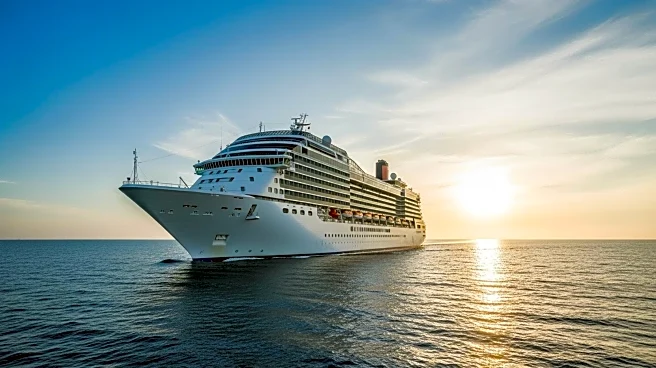What's Happening?
In 2024, the cruise industry experienced a significant resurgence, with 34.6 million travelers opting for cruise vacations, marking a 16% increase from pre-COVID-19 levels. The average age of cruise passengers has decreased to 46, indicating a shift in demographics. Cruise lines are operating at near-full capacity, with stock prices surging and substantial investments in new ships. The industry's growth is driven by financial predictability and convenience, appealing particularly to Generation X and Y. Despite previous challenges such as the COVID-19 pandemic and climate activism, the industry has rebranded itself, focusing on energy-efficient vessels and diverse marketing strategies.
Why It's Important?
The cruise industry's revival is significant for the global tourism sector, as it demonstrates resilience and adaptability in the face of economic and environmental challenges. The industry's focus on financial predictability and convenience aligns with current consumer preferences, particularly among younger generations. This resurgence contributes to economic growth, with increased investments in new ships and technology. However, the industry faces ongoing challenges, including geopolitical tensions affecting cruise routes and environmental concerns leading to restrictions in certain European cities. The industry's ability to navigate these challenges will be crucial for its continued success.
What's Next?
The cruise industry is expected to continue its growth trajectory, with projections indicating 37.7 million cruise passengers by 2025. The industry is investing in new ships and technologies to enhance the cruise experience and attract a broader audience. However, it must address environmental concerns and geopolitical tensions that could impact cruise routes. The industry's focus on personalized, eco-friendly, and exclusive voyages will be key to maintaining its appeal and expanding its market share.
Beyond the Headlines
The cruise industry's transformation highlights broader trends in the tourism sector, including the demand for sustainable travel options and the importance of rebranding to attract new demographics. The industry's success in overcoming previous negative perceptions and adapting to consumer preferences offers valuable insights for other sectors facing similar challenges.









